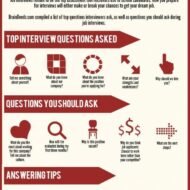Posted by Managementguru in Business Management, Change management, Decision Making, Entrepreneurship, Human Resource, Leadership, Motivation
on Oct 1st, 2014 | 0 comments

Helpful Tips for Young leaders Here’s a random list of practical advice for young leaders. If you can learn and practice these early in your career, it will help you avoid having to learn them by experience. Delegate, Trust People down the line and Take Advice: While a young business leader may have a flair for leading from the front, one should realize that limited experience is a limiting factor. People are far more likely to take a manager seriously only if he or she listens to and heeds advice. When you act as the sole proprietor of making decisions in your company, people working for you start losing faith in you. It creates what is called “NEGATIVE VIBES” which is not at all good for the overall development of an organization. It is a good practice to communicate and consult with your immediate sub-ordinates before going for big decisions. Learn to let go of control. It is but appropriate to include employees in decision making and you shall be definitely rewarded with more workable strategies. Set an Example: At the same time, one of the most effectual ways to display ability is to lead by example and work hard. A leader must be prepared to shoulder a fair share of the work-load and the #involvement and #commitment he exhibits is undoubtedly infectious and projects him a great team player. The most effective way to earn respect is to lead from the front and help others succeed. Be wary about your conduct, behavior and actions and deeply aware of how it may influence others. Show #conviction: A leader has to have conviction in his/her decisions. If the young manager has done proper ground work and research, then the decision may well be the right one and he/she might be able to stand by and justify the decisions made even when challenged by experienced people. I thoroughly go with this viewpoint “A ‘No‘ uttered from the deepest conviction is better than a ‘Yes‘ merely uttered to please, or worse, to avoid trouble.” Mahatma Gandhi A leader should learn to say ‘NO’ at the right time as indecisiveness is one of history’s greatest leadership killers. Top 25 Leadership Quotes Keep Your Cool in Crisis: Part of being a successful leader is how you handle pressure. In the dynamic business environment you may have to face more challenging and stressful situations and your employees’ judge you based on how you treat such pressure. If you are a man who can see things from the right perspective embracing rationale, your team members will feel reassured by your cool composure, which will in turn develop their trust and confidence in the leader. Manage expectations: Have you ever given a thought about what employees’ expect in you? Communication is a natural gift for leaders and you may very well notice that great leaders are excellent communicators. Here, communication isn’t just talking but a one-on-one, heart-to-heart talk as you would with your close family members. By opening the lines of communication and being accessible, a leader can build a team with people who understand the ##goals and #objectives with ultimate clarity. Present Yourself with Dignity: In Tamil language, there is an age old proverb, “Aal Paadhi Aadai Paadhi”, meaning “#Good Looks Make the Work Easy”. In this modern world, a professional look is mandatory to signify your culture and #personality. A professional, well-dressed businessperson, gives the impression that he thinks that the workplace and the people there are important.” Marilyn Monroe once rightly said “I don’t mind making jokes, but I don’t want to look like...

Posted by Managementguru in Human Resource, Interview Questions, Strategy, Training & Development
on May 30th, 2014 | 0 comments

How Do You Answer the Job Interview Question – What is Your Greatest Strength “If you fail to prepare, then be prepared to fail”- This saying hundred percent fits the rule of the game when it comes to job interview. Spade-work is absolutely essential: – about the company in which you are seeking a position, key members involved in the making of the company, the culture and other prospects. FIQ’s of JIQ’S: Let us look at some of the common and frequently asked questions in interviews and try to understand what the interviewer expects your answer to be. Try to gauge the underlying purpose of the question in relevance to the job being applied for and please also realize the fact that interviews are acid-tests to estimate your personality as a whole; not simply your knowledge, skills and experience. What do they mean by strength? Strength is nothing but what you are good at. Say, you might be good at singing, you might be good at ballet dancing, and you might be good at even eaves-dropping! But is it a pleasant or an appreciable attribute to be discussed when it comes to your job interview? Always remember when asked about your strengths, you have to pin-point the qualities that are needed to complete the task you might be assigned for, in case you are selected. Everything in relation to the job position you are trying to acquire. Understand Employers’ Perspective and Satisfy Their Expectation: Neither be blunt nor blatant, try to give a big picture of all your experiences in the previous jobs as an impressive package and make the interviewer feel that you will definitely be an asset to the company. If it is a sales manager position, you might want to explain precisely how you completed your sales targets ahead of time, how you increased the growth rate of your company in a time-bound fashion and how you pulled your team through tough situations. If you are naturally good at communicating, no probs, but if not, it is better to have a list mentally prepared of your greatest strengths prior to an interview. By communicating, I don’t mean to say talking but making your point noted or reaching across. If you are a fresher, you have nothing to lose by being bold and assertive as it will only add to your experience. All mistakes are experiences which teach us “how not to perform a task” or “how not to behave in a particular situation”. Here is a list of the 10 most desirable traits that all employers love to see in their employees: A proven track record as an achiever…especially if your achievements match up with the employer’s greatest wants and needs. Intelligence…management “savvy”. Honesty…integrity…a decent human being. Good fit with corporate culture…someone to feel comfortable with…a team player who meshes well with interviewer’s team. Likeability…positive attitude…sense of humor. Good communication skills. Dedication…willingness to walk the extra mile to achieve excellence. Definiteness of purpose…clear goals. Enthusiasm…high level of motivation. Confident…healthy…a leader. Courtesy – http://dev.fyicenter.com Not everybody has all these qualities imbibed in them; it all lies in your expression of interest to learn those qualities which you are slightly lacking and enhance those qualities which you are already good at. It is that spark of enthusiasm makes you all different and more prospective than your competitors. With this question, the interviewer seeks to find out if: • Your strengths align with the company’s needs • You can do the job and perform like a rock star • You are the best person for the job — no need to hold out for someone better • You have...




